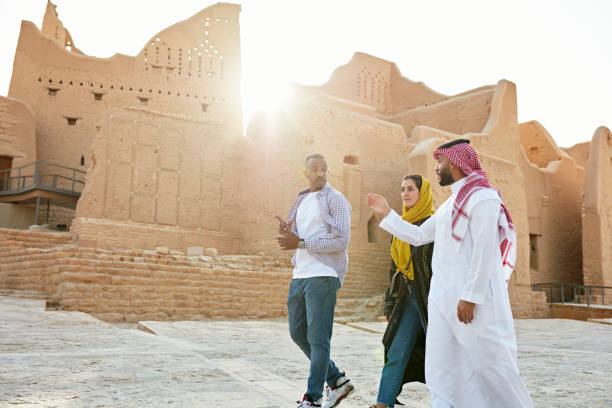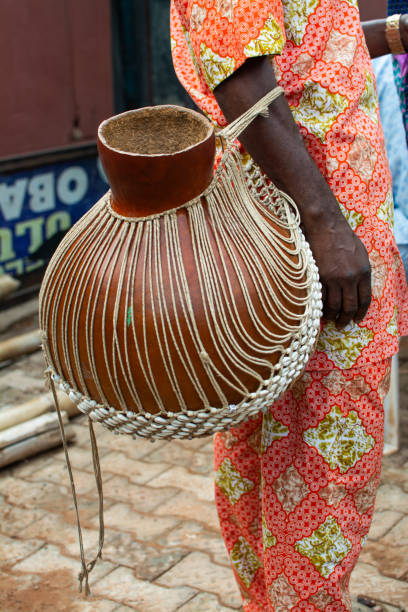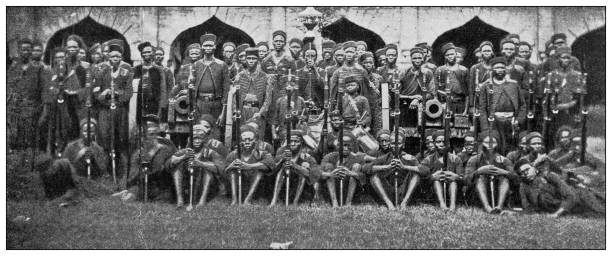Vibrant Component of Africa’s Linguistic Diversity
Introduction:
In the vast expanse of Africa, a continent renowned for its diversity of cultures, landscapes, and peoples, language serves as both a bridge and a barrier, connecting disparate communities while preserving the unique identities that define them. From the sun-scorched sands of the Sahara to the lush forests of the Congo Basin, Africa’s linguistic tapestry is as intricate and varied as the continent itself, woven together by centuries of migration, trade, conquest, and cultural exchange.
In this advanced exploration, we delve into the multifaceted world of African languages, tracing their historical origins, geographical distribution, and cultural significance. From the ancient tongues of North Africa to the vibrant vernaculars of sub-Saharan Africa, each language tells a story of resilience, adaptation, and evolution, reflecting the complex interplay of social, political, and environmental factors that have shaped Africa’s linguistic landscape over millennia.
As we journey through the linguistic corridors of Africa, we encounter a diverse array of languages, each with its own unique characteristics, dialects, and regional variations. Arabic, with its rich literary tradition and global influence, stands as a testament to the enduring legacy of North Africa’s cultural heritage, while Swahili, the lingua franca of East Africa, serves as a symbol of regional unity and identity.
Moving southward, we encounter French, a language of colonial legacy and cultural exchange, which has left an indelible mark on the linguistic map of Africa, shaping the identities and aspirations of millions of people across the continent. Meanwhile, indigenous languages such as Yoruba, Hausa, Igbo, and Zulu, embody the rich tapestry of Africa’s cultural diversity, serving as vehicles for storytelling, cultural expression, and community cohesion.
As we navigate the linguistic landscape of Africa, we are confronted with both the challenges and opportunities that language presents. In a rapidly globalizing world, where English, French, and other colonial languages often dominate the discourse, indigenous languages face the threat of marginalization and extinction, risking the loss of invaluable cultural heritage and identity.
Yet, amidst these challenges, there is also cause for hope and celebration. Across the continent, efforts are underway to preserve, revitalize, and promote indigenous languages, recognizing their intrinsic value as repositories of traditional knowledge, cultural wisdom, and historical memory.
In this advanced exploration, we seek to unravel the intricate threads of Africa’s linguistic tapestry, illuminating the rich diversity of languages that form the cornerstone of the continent’s cultural heritage. By delving into the historical roots, contemporary significance, and future prospects of African languages, we hope to deepen our understanding of the complex interplay between language, culture, and identity in Africa, and to celebrate the vibrant tapestry of linguistic diversity that defines this extraordinary continent.

Arabic:
Arabic, a language of historical significance and cultural richness, holds a prominent place within the linguistic landscape of Africa with over 170million speakers. Spoken across several African countries, Arabic serves as an official or co-official language in nations such as Algeria, Comoros, Djibouti, Egypt, Eritrea, Libya, Mali, Mauritania, Morocco, Somalia, Sudan, Tunisia, and previously in South Sudan.
In Algeria, Arabic shares its status with Berber, while in Morocco, it coexists with Berber as well. In Tunisia, Arabic stands as the sole official language. Across North Africa, Arabic serves as the primary means of communication and expression, reflecting the region’s historical ties and cultural heritage.
In Sudan, Arabic holds the distinction of being the sole official language, underscoring its significance within the country’s linguistic landscape. Meanwhile, in countries like Somalia and Djibouti, Arabic shares its status with other languages such as Somali and French, respectively, highlighting the linguistic diversity prevalent in these regions.
With a rich literary tradition, Arabic serves as a vehicle for expressing ideas, emotions, and cultural nuances across Africa. From poetry to prose, Arabic literature reflects the diverse experiences and perspectives of its speakers, contributing to the continent’s vibrant intellectual heritage.

French:
French, a language of colonial legacy and cultural exchange, occupies a central position within the linguistic mosaic of Africa with over 167 million speakers. Spoken across numerous countries, French serves as an official language or lingua franca in nations such as Senegal, Mali, Ivory Coast, Burkina Faso, Niger, Togo, Benin, Cameroon, Chad, Central African Republic, Congo, Gabon, Equatorial Guinea, and Madagascar.
In Senegal, French shares its status with Wolof, reflecting the country’s cultural diversity and historical influences. Similarly, in countries like Ivory Coast and Burkina Faso, French serves as a unifying language, bridging linguistic divides and facilitating communication among diverse ethnic groups.
With a significant population of French speakers across Africa, the language plays a crucial role in education, administration, and commerce. From classrooms to boardrooms, French serves as a gateway to opportunity, enabling individuals to access a wealth of resources and information.
In addition to its practical utility, French also serves as a vehicle for cultural expression and artistic creativity. From literature to cinema, Francophone Africa boasts a rich cultural heritage, with French serving as a medium for sharing stories, ideas, and perspectives with the world.

Swahili:
Swahili, a language of cultural fusion and historical significance, stands as one of Africa’s most widely recognized languages with over 200 million speakers across the world. Spoken across East Africa, Swahili serves as an official or national language in countries such as Tanzania, Kenya, Uganda, Rwanda, Burundi, and the Democratic Republic of Congo.
With a rich oral tradition and literary heritage, Swahili reflects centuries of cultural exchange and linguistic evolution. From poetry to folk tales, Swahili literature embodies the diverse experiences and perspectives of its speakers, contributing to the continent’s vibrant cultural tapestry.
As a lingua franca of East Africa, Swahili plays a crucial role in facilitating communication and fostering regional integration. From bustling marketplaces to diplomatic summits, Swahili serves as a medium for cross-cultural exchange and mutual understanding among diverse communities.
With its global presence in radio broadcasting, literature, and popular culture, Swahili serves as a powerful symbol of African identity and unity. From Nairobi to Dar es Salaam, Swahili speakers share a common linguistic heritage, transcending national borders and ethnic divides.

Yoruba: Preserving Cultural Identity Through Language
Yoruba, a language of cultural resilience and historical significance, stands as a testament to Africa’s linguistic diversity with over 50 million speakers across africa. Spoken across Nigeria, Benin, and Togo, Yoruba serves as an official language or lingua franca in regions such as Oyo, Lagos, Ogun, Ondo, Osun, Ekiti, Kwara, Kogi, and parts of Benin and Togo.
With a rich oral tradition and literary heritage, Yoruba reflects centuries of cultural exchange and linguistic evolution. From folklore to proverbs, Yoruba literature embodies the values, beliefs, and experiences of its speakers, contributing to the continent’s vibrant cultural tapestry.
As a vehicle for preserving cultural identity, Yoruba plays a crucial role in fostering community cohesion and pride. From traditional ceremonies to modern-day celebrations, Yoruba serves as a medium for expressing cultural heritage and transmitting ancestral wisdom from one generation to the next.
In addition to its cultural significance, Yoruba also serves as a practical tool for communication and commerce. From markets to educational institutions, Yoruba speakers rely on the language to navigate daily life, forge connections, and exchange ideas with others.
With its global diaspora and growing presence on the digital frontier, Yoruba continues to evolve and adapt to modern-day realities. From literature to music, Yoruba speakers harness the power of language to celebrate their heritage, inspire creativity, and build bridges across cultures and continents.

Hausa: Bridging Divides Through Language
Hausa, a language of historical significance and cultural richness, holds a prominent place within the linguistic landscape of West Africa with over 88 million speakers. Spoken across Nigeria, Niger, Cameroon, Ghana, Benin, Togo, Chad, and Sudan, Hausa serves as an official language or lingua franca in regions such as K
ano, Kaduna, Maradi, Ngaoundere, and N’Djamena.
With a rich oral tradition and literary heritage, Hausa reflects centuries of cultural exchange and linguistic evolution. From poetry to prose, Hausa literature embodies the diverse experiences and perspectives of its speakers, contributing to the continent’s vibrant intellectual heritage.
As a lingua franca of West Africa, Hausa plays a crucial role in facilitating communication and fostering regional integration. From bustling marketplaces to diplomatic summits, Hausa serves as a medium for cross-cultural exchange and mutual understanding among diverse communities.
With its global presence in radio broadcasting, literature, and popular culture, Hausa serves as a powerful symbol of African identity and unity. From Lagos to Niamey, Hausa speakers share a common linguistic heritage, transcending national borders and ethnic divides.

Igbo: Preserving Tradition Through Language
Igbo, a language of cultural resilience and historical significance, stands as a testament to Africa’s linguistic diversity with over 47 million speakers. Spoken across Nigeria and Equatorial Guinea, Igbo serves as an official language or lingua franca in regions such as Abia, Anambra, Ebonyi, Enugu, and Imo.
With a rich oral tradition and literary heritage, Igbo reflects centuries of cultural exchange and linguistic evolution. From folklore to modern literature, Igbo literature embodies the values, beliefs, and experiences of its speakers, contributing to the continent’s vibrant cultural tapestry.
As a vehicle for preserving cultural identity, Igbo plays a crucial role in fostering community cohesion and pride. From traditional ceremonies to modern-day celebrations, Igbo serves as a medium for expressing cultural heritage and transmitting ancestral wisdom from one generation to the next.
In addition to its cultural significance, Igbo also serves as a practical tool for communication and commerce. From markets to educational institutions, Igbo speakers rely on the language to navigate daily life, forge connections, and exchange ideas with others.
With its global diaspora and growing presence on the digital frontier, Igbo continues to evolve and adapt to modern-day realities. From literature to music, Igbo speakers harness the power of language to celebrate their heritage, inspire creativity, and build bridges across cultures and continents.

Zulu: A Language of Southern African Heritage
Zulu, also known as isiZulu, stands as a cornerstone of Southern Africa’s linguistic heritage, representing the rich cultural traditions of the Zulu people. With approximately 13.56 million native speakers, Zulu serves as the most widely spoken home language in South Africa, with a significant presence in the province of KwaZulu-Natal.
As an official language of South Africa since 1994, Zulu holds a prominent place within the country’s linguistic landscape, reflecting its historical significance and cultural importance. With its roots in the Nguni branch of the Bantu languages, Zulu embodies centuries of cultural exchange and linguistic evolution, serving as a medium for expressing identity, heritage, and tradition.
From oral storytelling to modern literature, Zulu literature reflects the diversity of experiences and perspectives within Zulu-speaking communities, contributing to the country’s vibrant cultural tapestry. With its widespread usage and cultural significance, Zulu plays a crucial role in fostering community cohesion, promoting cross-cultural understanding, and preserving the heritage of the Zulu people.

Conclusion:
In conclusion, the diverse array of languages highlighted in this exploration underscores the richness and complexity of Africa’s linguistic landscape. From Arabic’s historical significance and widespread presence across North Africa to French’s role as a lingua franca in numerous countries, each language reflects centuries of cultural exchange, historical evolution, and resilience.
Swahili emerges as a global language with deep roots in East Africa, serving as a symbol of regional unity and cultural heritage. Meanwhile, Yoruba, Hausa, Igbo, and Zulu represent the vibrant traditions and identities of their respective communities, fostering a sense of pride, belonging, and cultural continuity.
Despite their linguistic diversity, these languages share common threads of cultural preservation, community cohesion, and intercultural exchange. They serve as mediums for storytelling, expression, and connection, enriching the tapestry of Africa’s cultural heritage.
As Africa continues to evolve and embrace the challenges of the modern world, these languages remain vital pillars of identity, communication, and cultural expression. Through their continued use and celebration, they ensure that the voices, traditions, and stories of Africa’s diverse peoples endure for generations to come.
Очень свежие события мировых подиумов.
Актуальные мероприятия всемирных подуимов.
Модные дома, лейблы, гедонизм.
Самое лучшее место для трендовых людей.
https://metamoda.ru/
https://metamoda.ru/
Очень стильные события мира fashion.
Абсолютно все события мировых подуимов.
Модные дома, торговые марки, гедонизм.
Новое место для модных людей.
https://balmain1.ru/balmain/381-kak-otlichit-originalnyy-balmain-ot-poddelki/
Hi there, just became aware of your blog through Google, and found that it is really informative.
I’m going to watch out for brussels. I will be grateful if you continue this in future.
Numerous people will be benefited from your writing. Cheers!
Lista escape roomów